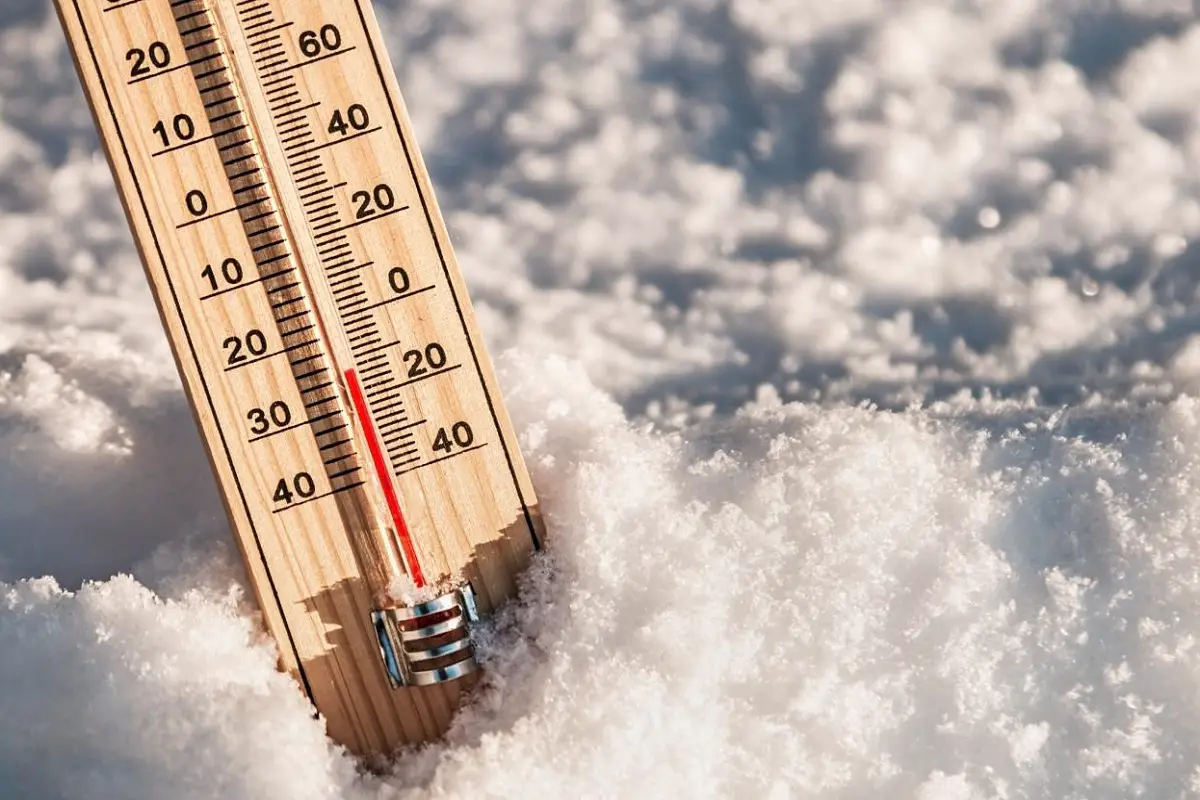Freezing temperatures can wreak havoc on all types of equipment. This can put a halt on necessary activities, such as transportation, construction work, and home heating. But do fire extinguishers freeze? Find out in this post.
Which Fire Extinguisher Contents Can Freeze?
| Fire Extinguisher Content | Will It Freeze? |
| Water | Yes |
| Foam | Yes |
| CO2 | No |
| Ammonium Sulfate | Yes |
| Monoammonium Phosphate | No |
| Sodium Bicarbonate | No |
| Potassium Bicarbonate | No |
| Nitrogen | No |
| Water Mist | Yes |
| AFFF foam | Yes |
| FFFP foam | Yes |
| Halon 1301 | No |
| Halon 1211 | No |
| Halon 104 | No |
| Potassium Citrate | No |
| Potassium Acetate | No |
| Potassium Carbonate | No |
The freezing point of water is:
- Fresh water – 32 degrees Fahrenheit, 0 degrees Celsius, 273.15 Kelvin
- Salt water – 28.4 degrees Fahrenheit
Dry powder solids will not freeze at normal feezing temperature. These contents are the least likely to have trouble when temperatures drop.
Types of Fire Extinguishers That Can Freeze
Class A (water), Class K, AFFF foam, and FFFP foam fire extinguishers can freeze when left in temperatures below 40 degrees fahrenheit. Any fire extinguisher that has water as a main fire suppressant is susceptible to freezing.
However, even dry powder fire extinguishers can ‘gum up’ due to the increased viscosity if exposed to extremely low temperatures. But, even if you live in a region with cold winters, these types of fire extinguishers should remain functional.

Will a Frozen Fire Extinguisher Still Work?
Many types of fire extinguishers are resistant to cold and can work even when temperatures drop below freezing. If a fire extinguisher freezes, it is likely due to having water or foam contents. This will render the fire extinguisher useless and cannot be relied upon to put out a fire.
What To Do If a Fire Extinguisher Freezes?
In a worst case scenario, a fire extinguisher might fail to operate if the fire extinguishing agent has turned into a solid block of material, but this only happens in rare cases where fire extinguishers have been left in below freezing temperatures for an extended period of time.
If a fire extinguisher freezes, it cannot be used. It will likely not function properly and the freezing temperature may have cracked the canister due to expanded contents. The valve or hose may have also cracked due to freezing.
The fire extinguisher will need to be replaced or inspected by a qualified professional. Thawing out the fire extinguisher and then attempting to use it is not safe because it could be damaged.
Fire Extinguisher Storage Temperatures
Fire extinguishers are critical peices of safety equipment and must be stored properly to keep them functional. Storing fire extinguishers in uninsulated places is not a good idea, even if the extinguisher can handle the cold temperatures.
Places that are often un-insulated include:
- Garages
- Basements
- Attics
- Outdoors
- Storage sheds
- Warehouses
Fire extinguishers should be stored at above 40 degrees and below 120 degrees Fahrenheit. Both freezing and high temperatures can cause damage to the fire extinguisher components and shorten its lifespan.
Fire Extinguishers With Anti-Freeze Added
Some fire extinguisher brands offer water based fire extinguishers with additional anti-freeze added to the mixture. For example, ethylene glycol can be added to water to lower the freezing point. However, at very low temperatures, it will thicken and eventually clog the nozzle. Salts can also be added to water fire extinguishers to lower the point of freezing while not thickening.
Always check with the brand to make sure if any anti-freeze has been added. There should also be a maximum and minimum temperature range displayed on the label.
In Closing
Fire extinguishers are specialized fire fighting equipment made to handle a range of different environments and temperatures. However, there is a limit to how much cold they can withstand before being damaged or made non-functional. Always make sure to store and maintain your fire extinguishers properly according to the manufacturers recommendations.
